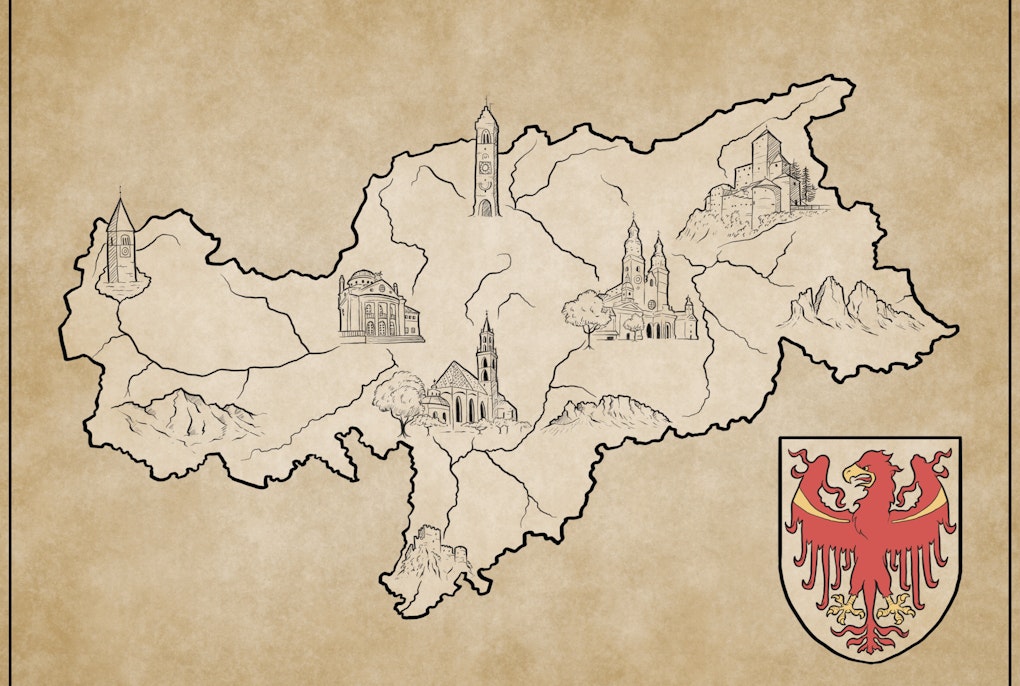
[DE] 50 Jahre Südtirol-Autonomie als Modell eines Vereinten Europa



In order to understand why we have defined the rule of law as a paradox, it is necessary to start from the meaning that this principle assumes in European Union law and to analyse the tools with which the Union should deal with the crisis of the rule of law.
The main reference regarding the rule of law is constituted by art. 2 of the Treaty on European Union, which provides that "the Union is founded on the values of respect for [...] the rule of law and respect for human rights".
Even earlier, the rule of law is recalled in the Preamble of the TEU, which states that the EU is inspired "by the cultural, religious and humanistic inheritance of Europe, from which have developed the universal values of the inviolable and inalienable rights of the human person, freedom, democracy, equality and the rule of law, [...] ”. Likewise, the Preamble of the EU Charter of Fundamental Rights reiterates that "the Union is based on the principles of democracy and the rule of law [...]".
Therefore, the rule of law seems to be part of the Union’s genetic code, following a double direction. On the inside, respect for the rule of law is one of the fundamental values on which the Union is founded; towards the outside, the rule of law is one of the principles to be promoted in the rest of the world, as stated in paragraph 1 of art. 21 TEU.
This dual direction is confirmed by art. 49 TEU, which stipulates that, to become a member of the Union, it is not enough to respect the values of art. 2 TEU, but it is also necessary to promote them. Furthermore, if in art. 49 the rule of law appears indirectly, by referring more widely to art. 2, the EU Accession Criteria (Copenhagen Criteria) explicitly provide that a country must demonstrate it has "institutions guaranteeing democracy, the rule of law, human rights and respect for and protection of minorities" in order to start negotiations. Therefore, the rule of law represents one of the conditionalities that bind access to the Union.
The question arises naturally: given the importance of the rule of law, human rights and democracy, what actions does the Union take if a Member State violates these principles?
Since the end of the Barroso II Commission, the European Commission has been called upon to take an active role in protecting and strengthening the rule of law, specifically facing what was happening in Hungary and Poland. To accomplish this task, in 2014 the Union adopted an additional tool: the Rule of Law Framework.
Until then, the Treaties provided that the Commission could take action against Member States that violated EU law by launching an infringement procedure, as regulated by art. 258 TFEU, or by triggering art. 7 TEU. These two possibilities, however, have specific limits, which make them insufficient.
In fact, the Commission can launch an infringement procedure only if a Member State is in violation of a specific provision of EU law. However, there are situations that lie outside the scope of EU law, and therefore are not considered violations of the Treaties in the strict sense, resulting in the inability to launch the infringement procedure. In these situations, it is possible to resort to the preventive and sanctioning mechanisms provided for by art. 7 TEU, as the scope of this article goes beyond the areas regulated by EU law. However, the triggering of art. 7 TEU requires very high thresholds and is considered the last resort.
In the intentions of the Commission, the Rule of Law Framework does not want to replace either the instruments provided for by national law, or the "classic" ones provided for by the Treaties, but rather it aims to integrate them and prevent their use, solving critical situations before triggering art. 7 TEU or the infringement procedure. This does not prevent the Commission from resorting to these two possibilities, in particularly serious cases.
Therefore, as established by the Commission, the Framework will be activated in the face of threats to the rule of law that are of a “systemic nature”, and therefore undermine the functioning of the Union as an area of freedom, security and justice. A “systemic threat” is intended as a situation that endangers the political and constitutional order of a Member State, systematically compromising the integrity, stability or proper functioning of the institutions and safeguard mechanisms that guarantee the rule of law.
The Framework is based on a series of principles that guide the entire process:
From a practical point of view, the procedure is divided into three phases:
Commission’s assessment: The Commission examines the various pieces of information that would indicate a systemic threat to the rule of law in a Member State. If the outcome of the assessment confirms an actual threat, the Commission initiates dialogue with the State in question and sends it a “rule of law opinion”, drawn up with the contribution of the Venice Commission and the EU Fundamental Rights Agency, in which concerns are motivated and the Member State is given the opportunity to respond. Following the duty of sincere cooperation, the Commission expects the State to cooperate throughout the process.
Commission’s Recommendation: If the Member State does not provide satisfactory solutions, the Commission sends it a Recommendation, stating that there is objective evidence of a systemic threat, and that national authorities are not taking the necessary measures to remedy it. The document sets a deadline for taking measures, as well as any specific indications on how to resolve the situation. Its content is made public.
Follow-up to the Recommendation: the Commission checks whether the Member State concerned has followed up on the advised instructions contained in the Recommendation. If the outcome of this follow-up is negative, the Commission evaluates whether or not to trigger art. 7 TEU.
The question arises naturally: given the importance of the rule of law, human rights and democracy, what actions does the Union take if a Member State violates these principles?
If it is not possible to resolve the systemic threat, through dialogue between the Union and the Member State, the Treaties provide the Commission with some tools to deal with these “no-return” situations, regulated by art. 7 TEU:
In the first case, the proposal must be motivated and can be advanced by one third of the Member States, by the European Commission or by the European Parliament, with two thirds of the votes representing the majority of the members. Once the proposal (for the activation of preventive measures) is received, the Member State is heard before the Council, which can make recommendations. If the Parliament approves the existence of the risk of violation, then the Council (with a majority of four fifths) can determine that there is a "clear risk of a serious breach by a Member State of the values referred to in Article 2" ( art. 7 (1) TEU).
The Treaties do not provide for specific consequences following the Council’s deliberation, other than a formal warning, which suggests what could happen if the Member State does not take adequate measures to resolve the situation.
Specifically, what could happen is the activation of a sanctioning mechanism (regulated by the rest of Article 7 TEU), with significant consequences to the Member State, with the possible suspension of some rights (including the right to vote), but not of the obligations established by the Treaties. As this is a drastic measure, the activation procedures are more complex than those for preventive measures.
First, the proposal can only be made by one third of the Member States or the Commission. Parliament, only later, enters the game for the approval of the proposal to activate the sanctioning mechanisms. In the event of approval by a two-thirds majority which represents the majority of the members, the European Council can decide, this time unanimously, to no longer determine the risk, but the actual existence of a serious and persistent breach of art. 2 TEU.
At that point, the Council can also decide to suspend some of the rights of the Member State, through a qualified majority vote. Art. 354 TFEU provides that this majority is made up of:
According to the same majority, the Board can modify or revoke the sanctions previously approved.
As evident from the analysis of art. 7 TEU, the adoption of concrete measures with direct consequences to the Member State are bound to a complex procedure, and above all caged by a qualified majority that is extremely difficult to achieve.
Once all these elements have been taken into consideration, it is already easier to understand why the EU’s attitude towards the rule of law is paradoxical to say the least. In the first place, the importance of the rule of law does not correspond to adequate tools to defend it where it is threatened. In fact, the Framework is characterised by generalised prudence: the Commission undertakes dialogue with the Member States to avoid more serious measures, but in the event of non-cooperation from the counterpart, it limits itself to "taking them into account" in the evaluation phase. The only really concrete and equivalent possibility in terms of severity is the activation of sanctioning mechanisms, which, as we have seen, are very difficult to activate due to the unanimity or qualified majority constraint.
Secondly, respect for and promotion of the rule of law, appear as a conditionality which exists only upon adhesion and not after entry. Some Member States pose a particularly critical situation with regard to the violation of the rule of law, yet they can enjoy the same rights as Member States that do respect the rule of law. At this stage, the only countries that continue to be unable to access the rights deriving from membership are those still on the path to European integration which do not fully meet the Copenhagen Criteria.
In 2020, the von der Leyen Commission wanted to give a signal of further commitment by adopting the Rule of Law Mechanism: a dialogue with the Member States focused on drafting an annual report on the rule of law. This should encourage inter-institutional cooperation at European level and in the Member States, involving national parliaments, judicial networks, professional associations, interest groups and NGOs. Yet, concrete and immediate measures are not on the horizon, other than the proposal to introduce a Rule of Law Conditionality for the disbursement of European funds to the Member States, currently stalled in the Council. Paradoxically, the country that has taken the most concrete measures so far is Norway, which although not a Member of the European Union, has decided to freeze the funds destined for Hungary and Poland for serious violations of the rule of law. The EU, for now, has limited itself to suspending the funds to some Polish cities defined as “LGBT-free zones”, a measure however, which has been offset by other (larger) funds provided by Warsaw.
At the moment, the Commission, acting as “guardian of the Treaties”, still seems penalised by the lack of the political will and incisiveness necessary to defend the values of the Union. The von der Leyen Commission could lead to a change of pace, as also indicated by the publication of an action plan for strengthening the rule of law based on "promotion, prevention, response", but only time will tell us if it will be a really effective plan.
This article is part of EUreka!'s collaboration with Lo Spiegone.
Communication from the Commission to the European Parliament, and the Council. “A new EU Framework to strengthen the Rule of Law” 11/03/2014.
Communication from the Commission to the European Parliament, the European Council, the Council, the European Economic and Social Committee, and the Committee of the Regions. “Strengthening the rule of law within the Union. A blueprint for action” 17/07/2019.
Consolidated version of the Treaty on European Union
Consolidated version of the Treaty on the Functioning of the European Union
Chalmers, Damian, Gareth Davies, and Giorgio Monti. European Union Law: Cases and Materials. Cambridge: Cambridge University Press, 2010.
Fabbrini, Federico. Fundamental Rights in Europe. Oxford: Oxford University Press, 2014.
Duxbury, Charles. “As EU debates rule of law, Norway’s already making offenders pay” Politico, 09/10/2020.
Kochenov, Dimitry. “The EU and the Rule of Law – Naïveté or a Grand Design?” in M. Adams et al. (eds.), Constitutionalism and the Rule of Law: Bridging Idealism and Realism (Cambridge University Press, 2017), pp. 419-444.
Pech, Laurent, and Dimitry Kochenov. “Strengthening the Rule of Law within the European Union: Diagnoses, Recommendations, and What to Avoid” RECONNECT Policy Brief No. 1, 2019 .
Pech, Laurent, and Dimitry Kochenov. “Better Late than Never? On the Commission's Rule of Law Framework and Its First Activation” Journal of Common Market Studies 54 (2016): pp. 1062–1074.
Pech, Laurent, and Dimitry Kochenov “Monitoring and Enforcement of the Rule of Law in the EU: Rhetoric and Reality” European Constitutional Law Review 11, no. 3 (2015): pp 512-540.
Schütze, Robert. European Constitutional Law. Cambridge: Cambridge University Press, 2015.
Wanat, Zosia. “Poland threatens to veto EU budget over rule of law” Politico, 13/10/2020.

This content is licensed under a Creative Commons Attribution 4.0 International license.